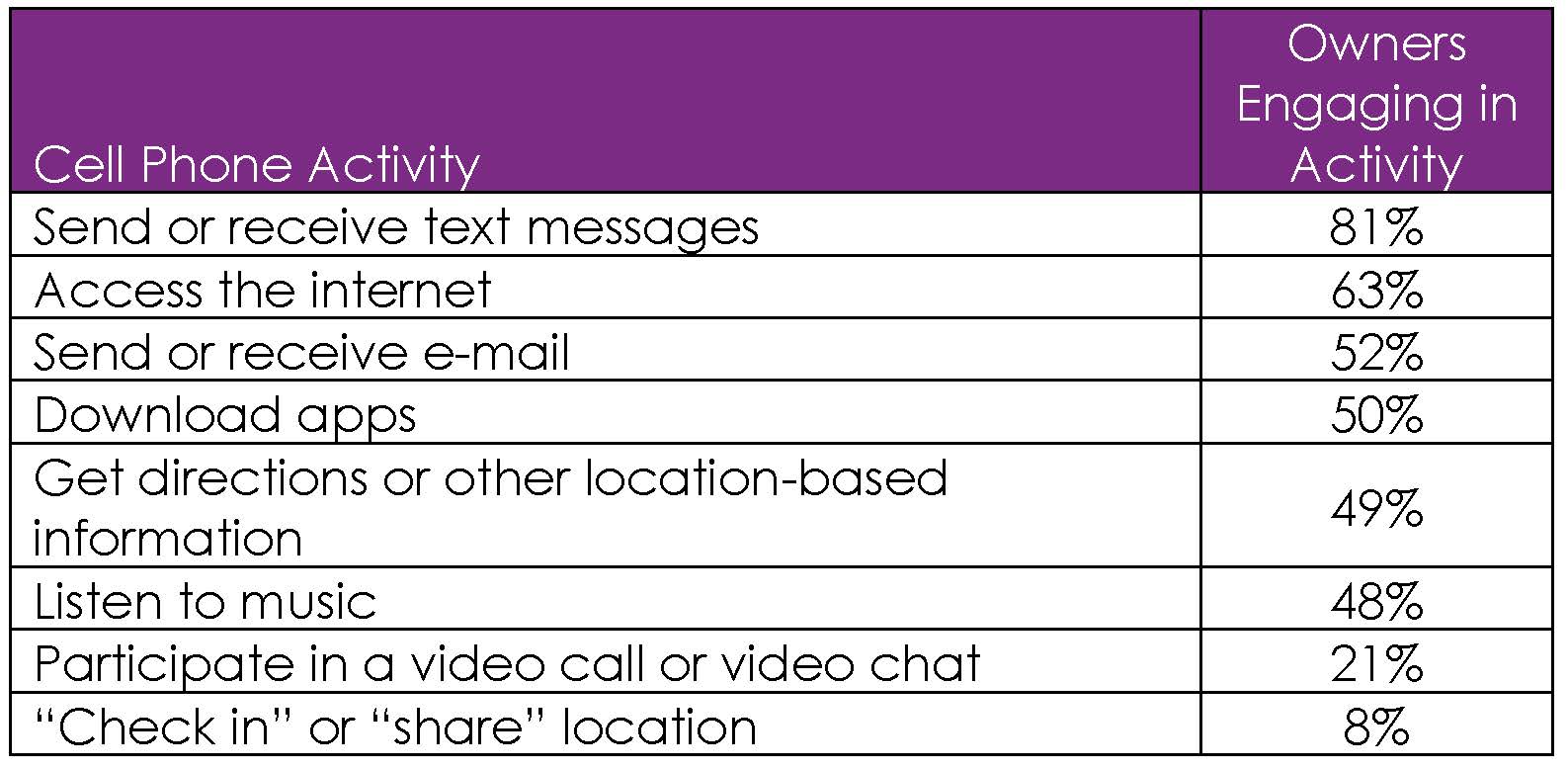The use of digital forensics in any type of litigation or investigation can uncover tremendously valuable electronic evidence from laptop and desktop computers, tablets, smart phones, and other mobile devices, as well as email and network servers.
These devices have become an integral part of people's daily lives; and many corporations have adopted “bring your own device” (BYOD) policies. This combination ensures that our handheld devices now contain a large amount of both business and personal information, including call history, text messages, emails, photographs, videos, calendar items, memos, address books, passwords, and credit card numbers.
Consider the fact that 96% of American adults own a cell phone, three-quarters of which are smart phones, which are used to handle a variety of tasks (see grid below).

Now, consider that we create more than 2.5 quintillion (that’s eighteen zeros) bytes of data every day. This includes roughly 145 billion emails. Given this prolific production, it should not come as a surprise that 90% of the data in the world today was created in the last two years. Much of this burgeoning data is stored in mobile devices or computer devices (laptops and desktops), or can be accessed remotely.¹

Content of communications (text and email), fact of communication, attachments to emails, photographs, and voicemail messages can all have evidentiary value in litigation. The claims or defenses in a lawsuit may make it important to know what applications were downloaded and when, and what websites were visited and when. The GPS data and network communications pinging and recording put a phone (and maybe its owner) in specific physical locations at specific times.
The many different applications and uses of smart phones and tablets produce a wide range of digital files that may be relevant to a civil lawsuit. (Check out our blog about mobile eDiscovery). The value of the evidence may run the gamut from modestly relevant to smoking gun, and may come in the form of unguarded statements in texts, emails, voicemails, incriminating downloads, GPS location tracking records, and photographs. Pertinent information may also lie beyond the digital device itself in cloud‑based accounts accessed through smart phones (think Craigslist, Facebook, and Twitter).
The value of a forensic examination is the ability to recreate what a user was doing on a digital device for the weeks or months leading up to an “event.” That event could be the termination or separation of an employee from a company (like in our Illegal Kickback Scheme Case Study), the receipt of a subpoena or other government regulatory inquiry, or the filing of a lawsuit or other administrative proceeding.
Avalon can perform collections on cell phones, smart phones, personal computers, work laptops, etc. Check out our Internal Investigation Case Study for more details.
References:
¹How Lawyers Get into Trouble with Technology, LAWYERIST.COM (Aug. 20, 2014), https://lawyerist.com/76077/lawyers-get-trouble-technology/.

